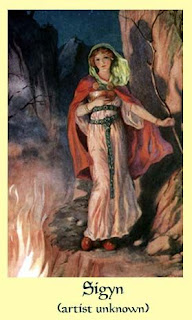Whatever do ancient VCR tapes have to do with ancient scroll? Well I'll tell you: they are all apart of the cyclical plan the creator gods put out there to keep us occupied. Allow me to explain.
In ancient Egypt books were written on a material called papyrus. Papyrus was made from papyrus reed, which grew at least six feet tall and was found only in the Nile Delta. the papyrus reed is now almost extinct in Egypt. But it was abundant in ancient times and was a valuable export.
The first step in making papyrus was to cut the papyrus reeds into strips. These strips were laid side by side in a single layer. Then another layer was laid on top of the first, with the top strips at right angles to the bottom strips. The strips of reed were pounded together until they were crushed into a sheet. Then the sheet of papyrus was smoothed out and left to dry.
To make a book, several sheets of papyrus were pasted together end to ten. A wooden rod was attached to each end of the long piece of papyrus. Starting with the right side, the papyrus was rolled onto the rod to create a papyrus roll.
It was on these rolls that books were written. A scribe began to copy a book by unrolling a new papyrus roll a few inches, so that the writing surface was in front of him and the rolled-up portion was on his right. He wrote in columns a few inches wide, unrolling more papyrus for each column. He used a pen made from a reed, with ink made of soot, gum, and water.
To read a book, the reader held the roll by the rods attached to each end. As he read, he unrolled the papyrus on the right and rolled up on the left rod the part of the book he had read. When he got to the end of the book, the papyrus was now rolled on the left rod instead of the right one. And so the reader -- or more likely, his/her servant or slave -- had to unroll the book from the left rod and roll it back up on the right rod so that the next reader did not find a backward book. The phrase "Be Kind, Rewind" was probably used in some form or another back then, just as it would be over two-thousand years later when we reached the height of analog video recordings for home entertainment. The VHS (Video Home System) much like the ancient papyrus scroll, had to be rewound after viewing. For awhile, the large VHS renting stores like Blockbuster even charged a fee for tapes that weren't rewound -- I know, I fought a lot of them.
So there you have another cyclical wonder of the world. Conversely, just as VHS tape was replaced with the DVD which didn't have to be rewound, the papyrus roll was replaced with animal skins which were called parchments. This advanced technique was achieved by stretching and smoothing out the skins of sheep and goats to make a thin and smooth kind of parchment called vellum. A book made this was was called a codex and much as the DVD was a huge advancement over the VHS, the codex was a huge advancement of the papyrus scroll because it was more durable and didn't have to be rewound after reading.
Of course, just as the computer/internet has replaced the DVD, parchment was replaced by paper and the books were plentiful, well, at least until the Christian church came along and burned them all to alleviate the competition. Fortunately, truth does find its way.
_________________________________________________________________________________
On this day, the Norse trickster god Loki and his consort Sigyn are honored. Loki is the god of strife, discord, and evil, as well as tricks and practical jokes. So, fellow truth seekers, be especially careful of a certain US president on this day, oh, wait, he has already tweeted:
Collusion is not a crime, but that doesn’t matter because there was No Collusion (except by Crooked Hillary and the Democrats)!












